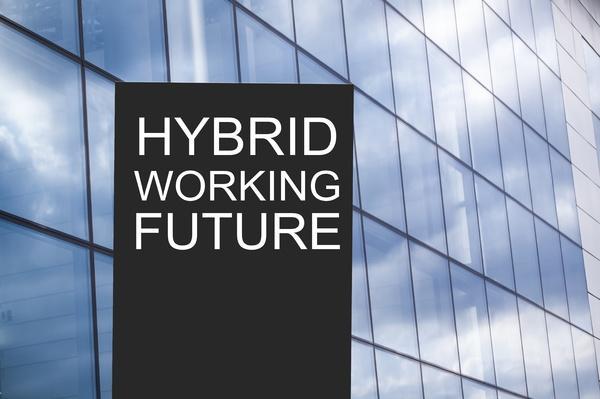What is Hybrid Work and Are You Willing to Do It?
After working from home for some or all of the last almost two years, many employees have decided they want to continue their remote work situations, some or all of the time. A work arrangement that includes both remote and in-person work is considered hybrid work.
A recent survey by Envoy showed that 47% of employees questioned said they would look for another job if their employer did not offer a flexible schedule. Some of the reasons for this include child care needs, being able to work when you’re most productive, and wanting to be safer in the workplace as the pandemic continues.
Types of Hybrid Work
There are almost as many types of hybrid work arrangements as there are workers, and each company has its own rules and requirements to define the arrangement. Here are a few of the most common hybrid work models:
- Employees can work from home unless they have meetings with clients or an in-person staff or team meeting is called.
- Employees have a set schedule of when they work from home and when they need to be in the office.
- Employees submit their schedule requests for when they come into the office and when they don’t.
- Employees have set hours they must work either from home or in the office.
- Employees have a flexible schedule and can work when it’s best for them, except for meetings.
Each employer has their own needs and priorities, which will help to determine the type of arrangement they decide to adopt. If you are offered a hybrid work arrangement, you should find out what exactly it entails and how the employer defines hybrid work.

Pros and Cons of Hybrid Work
Now that you have an understanding of what hybrid work is, you need to consider whether these arrangements could work for you. Most workers have experienced the benefits of working from home. But has remote work been a positive arrangement for you?
When remote work is done well, it can be effective and save employees a lot of time commuting and sitting in meetings. But it can be chaotic and confusing when it isn’t done well.
It may be difficult to tell who is in charge when teams work remotely. It can also be challenging to communicate with team members and coordinate the completion of projects.
If you have small children at home or your children’s school is still inconsistent with in-person instruction, it can be tempting to try to save on childcare while you work from home. But most people can’t successfully pull that off. Some sort of childcare is usually needed, at least for part of the day.
At the same time, hybrid work can sometimes work better for these situations since you will be going into the office for meetings and other activities that will be less child-friendly.
Working at home can also help to relieve stress since most people are more relaxed and comfortable at home. The downside to this is that some people are unable to keep clear boundaries between their work and home life, and they end up working more than they really should.
Will hybrid work be a good fit for you? GDH can help you figure out your priorities and match you with employers that need your talent. Join our talent network for more information.
Posted on May 04, 2022, 11: 18AM







